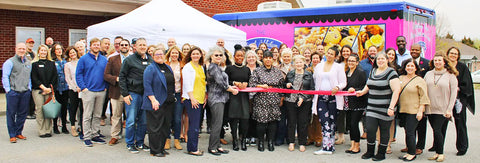The Journey: A Hopeful Path Forward
For many women in recovery, two dreams stand out above all others: reuniting with their children and owning a stable, safe home. For mothers whose parental rights were lost due to past struggles with substance abuse, the hope of being reunited with their children is deeply emotional and incredibly meaningful. Rebuilding these family bonds is a profound desire that can fuel their commitment to long-term recovery. Yet, for many, this journey begins with a painful truth: their struggles with addiction once led others to deem them unfit.
Understanding the Roots of Addiction
Addiction often stems from deep, unresolved pain. Many women turn to substances as a way to numb emotional suffering or to escape trauma from their past. Experiences of abuse, abandonment, mental health challenges, or physical injuries can lead them to self-medicate. The road to addiction is complex, and the need for healing is profound. Recovery isn't just about breaking free from substances; it's about healing from the wounds that led there in the first place.
The Struggles with Relapse
The early months of recovery are critical and challenging. Two major factors often contribute to relapse: a lack of stable employment and the financial hardship that comes with it, and a lack of emotional support. Addressing these elements is essential for lasting change.
The Support That Makes a Difference
Programs that provide job readiness training and emotional support are crucial to reducing the risk of relapse. They offer women the tools to succeed, both in the workplace and in their personal lives, by building the confidence and stability needed to navigate life post-recovery. These programs also ensure that women have the support they need as they rebuild their lives, emotionally and financially.
Sober Living: A Stepping Stone to Independence
Sober living homes offer a structured and supportive environment to women early in their recovery. However, the transition out of such programs can be daunting. Many women, especially those reuniting with their children, face significant challenges, including securing stable, livable wages to provide a safe home. Without the ability to earn a sustainable income, these women often find themselves in precarious living situations that can undermine their recovery. Obstacles such as criminal records, unstable work history, and poor credit scores further complicate their journey.
Additionally, people in recovery often return to the same environment that contributed to their addiction. Given that environmental cues can trigger relapse, it's crucial to help them find safe, new surroundings for a stable recovery. Without a supportive and substance-free environment, the risk of falling back into old patterns increases. Providing access to stable housing and opportunities for financial independence is key to breaking the cycle of addiction and ensuring long-term success.
The Next Step: S.T.E.P. Homes
Sisters Living in Community Supporting Each other
Through difficult times while
Encouraging and empowering as they
Parent with a purpose.
A STEP house allows women to continue on their journey after sober living and provides a safety net for them to ease back into society. The homes allow overnight stays with their children or allow their children to live with them as they rebuild their relationship. All done while providing them positive support and re-training as parents, while they live out the challenges of parenting - many for the first time sober or as single parents. STEP homes help prepare them for independent living, ensuring they have the tools to navigate their new life and responsibilities successfully.




